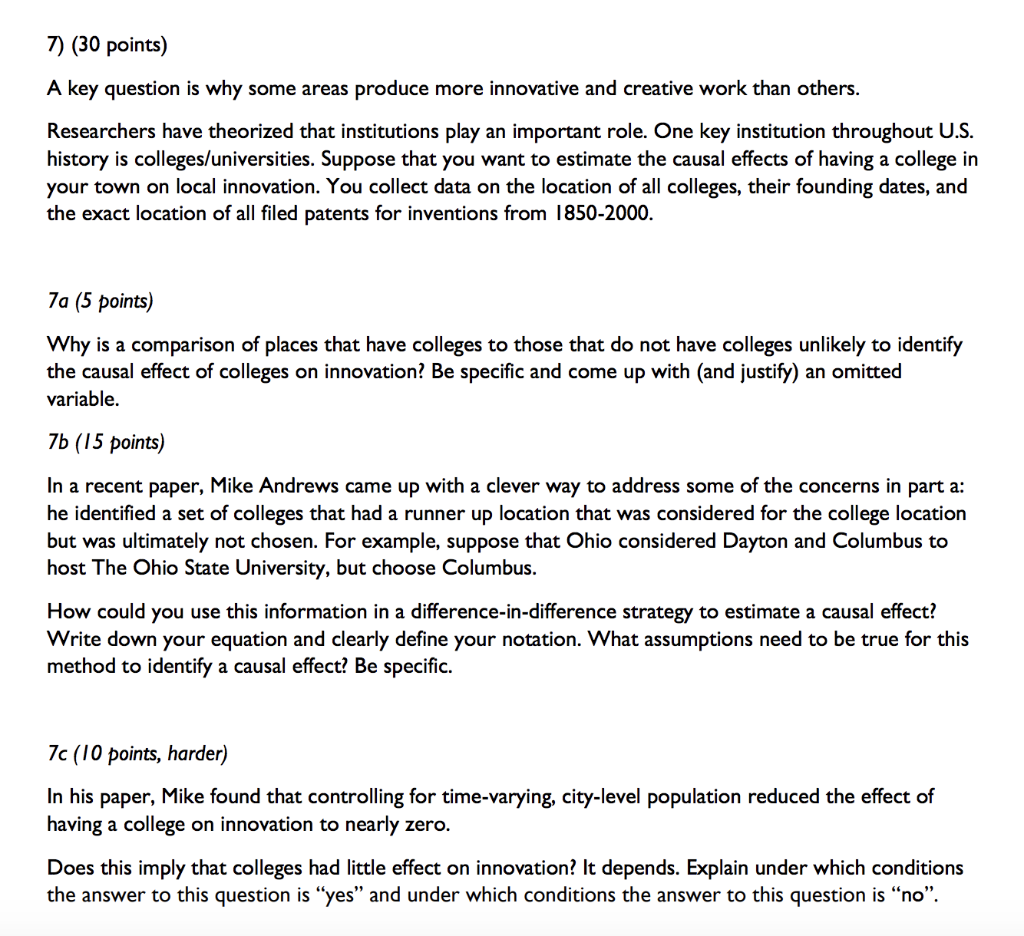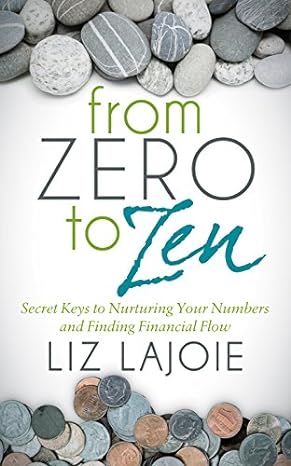
7) (30 points) A key question is why some areas produce more innovative and creative work than others. Researchers have theorized that institutions play an important role. One key institution throughout U.S. history is colleges/universities. Suppose that you want to estimate the causal effects of having a college in your town on local innovation. You collect data on the location of all colleges, their founding dates, and the exact location of all filed patents for inventions from 1850-2000. 7a (5 points) Why is a comparison of places that have colleges to those that do not have colleges unlikely to identify the causal effect of colleges on innovation? Be specific and come up with (and justify) an omitted variable. 7b (15 points) In a recent paper, Mike Andrews came up with a clever way to address some of the concerns in part a: he identified a set of colleges that had a runner up location that was considered for the college location but was ultimately not chosen. For example, suppose that Ohio considered Dayton and Columbus to host The Ohio State University, but choose Columbus. How could you use this information in a difference-in-difference strategy to estimate a causal effect? Write down your equation and clearly define your notation. What assumptions need to be true for this method to identify a causal effect? Be specific. 7c (10 points, harder) In his paper, Mike found that controlling for time-varying, city-level population reduced the effect of having a college on innovation to nearly zero. Does this imply that colleges had little effect on innovation? It depends. Explain under which conditions the answer to this question is yes and under which conditions the answer to this question is no. 7) (30 points) A key question is why some areas produce more innovative and creative work than others. Researchers have theorized that institutions play an important role. One key institution throughout U.S. history is colleges/universities. Suppose that you want to estimate the causal effects of having a college in your town on local innovation. You collect data on the location of all colleges, their founding dates, and the exact location of all filed patents for inventions from 1850-2000. 7a (5 points) Why is a comparison of places that have colleges to those that do not have colleges unlikely to identify the causal effect of colleges on innovation? Be specific and come up with (and justify) an omitted variable. 7b (15 points) In a recent paper, Mike Andrews came up with a clever way to address some of the concerns in part a: he identified a set of colleges that had a runner up location that was considered for the college location but was ultimately not chosen. For example, suppose that Ohio considered Dayton and Columbus to host The Ohio State University, but choose Columbus. How could you use this information in a difference-in-difference strategy to estimate a causal effect? Write down your equation and clearly define your notation. What assumptions need to be true for this method to identify a causal effect? Be specific. 7c (10 points, harder) In his paper, Mike found that controlling for time-varying, city-level population reduced the effect of having a college on innovation to nearly zero. Does this imply that colleges had little effect on innovation? It depends. Explain under which conditions the answer to this question is yes and under which conditions the answer to this question is no







